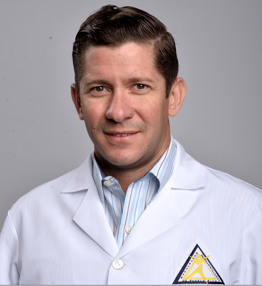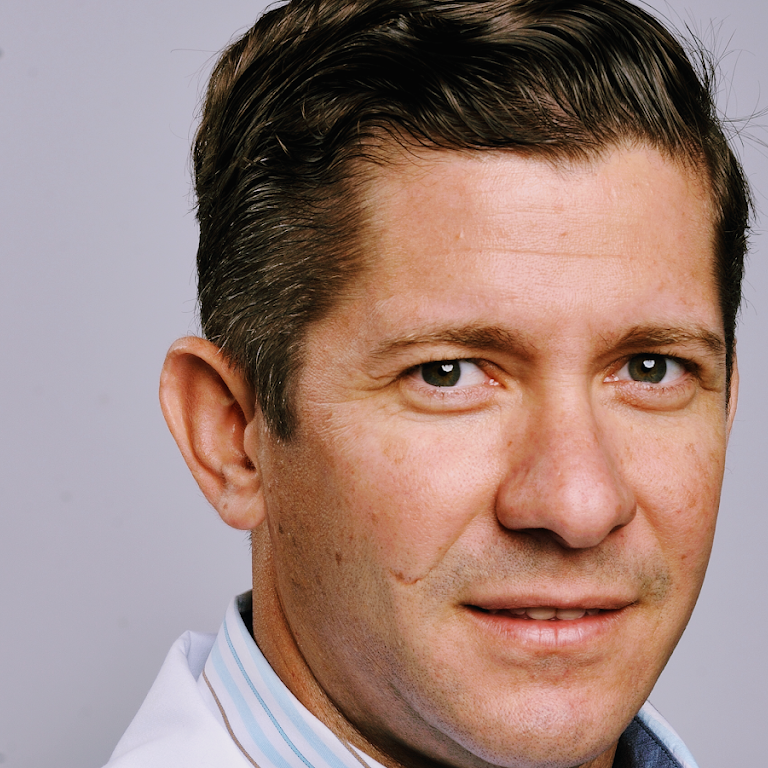

Explore Dr. Ricardo Gago’s inspiring story of healing, illustrating the profound rewards of alleviating patient pain, a testament to UAG’s nurturing environment.

Dr. Ricardo Gago, a rheumatologist with a degree from the Autonomous University of Guadalajara and past president of the Association of Rheumatologists of Puerto Rico, there is no greater professional reward than keeping his patients safe by reporting improvement in symptoms associated with rheumatic diseases.
“For me, being able to take someone’s pain away is something spectacular. You see someone say to you, ‘Thank you, doctor, because I can walk, I can sleep now’, and it’s a spectacular reward, and it is what you keep doing when you return home,” stressed the expert.
Dr. Gago received his bachelor’s degree from the University of Puerto Rico, and after moving to Mexico to study medicine, he returned to the island where he majored in internal medicine at the Medical Sciences campus. After completing his studies, the specialist completed his internship at the auxiliary hospital Auxilio Mutuo and took part in various research projects of the Puerto Rico Research Foundation.
“I have the opportunity to do that rheumatology, one of my great passions: For me, this specialty is an even deeper extension of internal medicine. After that it also has some focus on musculoskeletal pain which also catches my attention because I am a sports lover and suffer from pain a lot and finally we treat this type of ailment on a daily basis."
Over the years it has become easier to provide much more focused and patient-centred care while emphasizing the importance of patient control and knowledge of their condition:
"The practice is becoming increasingly complex. We see how treatments affect other areas of the body, so we need to track all of these aspects much more closely and understand them even more deeply."
To suspect a rheumatic disease, you just have to think about it. It is very complicated to refer to a cardinal symptom because this type of disease can affect different organs of the body such as the heart, lungs or kidneys, meaning any of these functional structures can trigger the disease.
Among the points to consider at the time of a diagnosis are the symptom pattern; to be able to determine if the clinical picture is inflammatory or if it responds to other characteristics corresponding to the development of osteoarthritis or other types of pathologies.
Once there is a specific result on the patient’s complaints and the symptoms presented, the expert assures that a multidisciplinary treatment is required, which not only concerns physical well-being in the different areas affected by the rheumatological disease, but also mental health strategies develop.
Rheumatology is his passion.
Pain is often depressing and anxious, and the patient eventually needs the support of a psychologist or psychiatrist, because depression certainly hurts. In other words, it becomes like a snowball going down a hill and getting bigger and bigger sometimes it’s not so much the joint pain that outweighs the fear.
In addition, the expert emphasizes the importance of having an assertive channel of communication between the patient and the treating physician, so that both can discuss the goals of the treatment and the side effects that can occur in response to the organism, which he calls Common Approval.
“Both the patient and the doctor make the decision about the treatment. Both go hand in hand in accepting this responsibility, knowing their possible side effects and also knowing what the purpose of this process is.”
Currently, Puerto Rico has a shortage of rheumatologists and the number of specialists is expected to continue to decrease over the years not only on the island but also in the United States.
“There are barely 60 or 65 active rheumatologists in Puerto Rico right now. However, the number of rheumatologists available to treat patients and new cases does not reach 20. In other words, it is necessary to make an initial diagnosis will help us to identify which patient really urgently needs a rheumatological evaluation and which one case can be better treated by a family doctor”.





In this inspiring interview, Dr. Paul Thomas Wielebinski reflects on how his education at UAG shaped his 40-year career in Internal Medicine, instilling clinical excellence, a global perspective, and a lifelong commitment to patient-centered care.




A recent El Paso Matters article explains that long-term population decline driven by lower birth rates and an aging population presents public health challenges for El Paso that require proactive planning to support both family wellbeing and healthy aging.